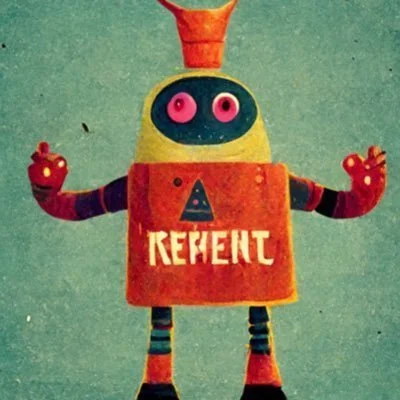On Repentance, Repair, and Twitter Bots
We live in a culture that values forgiveness. And forgiveness can be a beautiful thing.
It can also be weaponized and toxic.
Judaism has… never really been down with that. In Jewish texts, the onus is consistently on the perpetrator to own the harm they’ve caused, make it right, and - most importantly - make different choices in the future.
Tiny Windows typically works with organizations. But when the opportunity arose to take on a client that addressed this very issue, who was sharing work that spoke to our hearts, and had Torah to share that just needed to get out in the world, we couldn’t resist.
(And, honestly, we had so much fun.)
That was the case when it came to working with Rabbi Danya Ruttenberg on the release of her new book, which comes out today: ON REPENTANCE AND REPAIR: MAKING AMENDS IN AN UNAPOLOGETIC WORLD.
Our goals for the campaign were around pre-orders of the book, of course. And we’re proud to say that because of all the efforts put into getting this book out into the world (and because the book itself is so important and timely), ON REPENTANCE has already been ordered for a second printing. Everybody wants it!
But beyond that, it was about creating a conversation around teshuvah: the hard work of making amends and repairing the harm we’ve caused. With that in mind, we crafted the following elements of the campaign.
A book website. We needed a hub to share the basics about the book, process pre-orders, highlight praise, and link to events. A one-page Squarespace site was the perfect option, and we’re really proud of what we pulled together with OnRepentance.com (h/t to our creative collaborator, Squarespace magician Jeannine Gallagher, who made it happen).
A beautiful launch video. Video dominates the internet, and we knew the book launch wouldn’t be complete without a really special centerpiece video that not only caught people’s attention online, but embodied what the book was all about. A stop motion animation by our wildly talented TWC partner Lori Fimoff of Quietly Courageous Studios was exactly what we needed.
Educational content - comic book style. Danya talks about some big, heavy topics in the book. But the whole premise hinges on a five-step process of making amends for harm done originally laid out by the medieval Jewish scholar Maimonides. To help people wrap their heads around the basics, TWC’s fabulous graphic designer Brianna Collins created what she does best: a comic.
A digital street team. Word of mouth is still one of the most powerful forms of marketing, so why not tap your audience to share your message for you? We collected emails of Danya’s super fans and gave them specific ways they could help out the campaign.
Source sheets of the Jewish texts used in the book. Sefaria is a massive online library of Jewish texts and a worldwide community of all kinds of learners and teachers. It was the perfect place to create a collection of source sheets featuring the texts used in the books for folks to use in their discussions, as well as for online explorers to bump into as they navigate other texts.
And, a Twitter bot.
Say hello to Repentance Bot. Beep boop!
A lot of bad, half-hearted apologies end up on Twitter. This means there are a lot of opportunities to teach what it really looks like to be accountable, and make real amends. Enter @RepentanceBot, dreamed up by TWC’s Elad Nehorai (he also used an AI image generator to create the bot’s avatar), and built by TWC friend and tech-troublemaker-for-good Russel Neiss, Repentance Bot can be tagged anytime someone sees a bad apology. It’s a surprising, lighthearted approach to holy rebuke. And ideally, it’s an educational tool that uses tech to teach morality.
Twitter is known for doom scrolling. We micro-dose on other people's heightened, decontextualized emotions, and we feel like we're watching the world fall apart with every nudge of our thumbs. But when Repentance Bot gets called in, it's because you genuinely believe that something better is possible. It can change your scrolling habits from a frustrated "what now?" to a humble, hopeful "what if..."
Repentance Bot is making a name for itself as well - it was written up in the JTA.
We couldn’t have been more thrilled to work on this project. And in this season leading up to the High Holidays, we hope the book and the campaign around it help move the conversation from apologies to genuine amends.
Shanah tovah u’metukah, here’s to a good and sweet new year for all of us.









